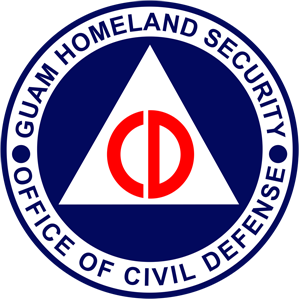The Offices of Guam Homeland Security and Civil Defense (GHS/OCD) along with the Mariana Regional Fusion Center (MRFC), continue to receive reports of suspicious messages on social media of purported businesses seeking Personally Identifiable Information (PII).
Most recently, reports include a purported private business on social media claiming to establish a Guam driver’s license for the consumer, in exchange for a large fee. Not all calls or messages from unusual senders should be regarded as suspect.
The community is reminded to remain vigilant and continue to follow these tips from the Federal Trade Commission to recognize and avoid scams:
- Do not give your personal or financial information in response to a request that you didn’t expect. Honest organizations won’t call, email, or text to ask for your personal information, like your Social Security, bank account, or credit card numbers.
- Spot imposters. Scammers may pose as a government official, family member, charity, or a company you do business with. Do not send money or give out personal information in response to an unexpected request- whether it comes as a text, phone call, or an email.
- Local numbers may be spoofed. Scammers use technology (‘spoofing’) to fake caller ID information to cause confusion to the end user. If someone calls asking for money or personal information, hang up. Conduct an online search utilizing legitimate websites or directly contact the institution.
- Do online searches. Search a company or product name with words like “review,” “complaint” or “scam.” Or search a phrase describing your situation, like “Social Security telephone call.” You can even search for phone numbers to see if other people have reported them as scams.
- Do not pay upfront for a promise. Scammers may ask individuals to pay in advance for things like debt relief, credit and loan offers, mortgage assistance, or a job. They may even promise that someone has won a prize, but first request taxes or fees. When individuals provide money up front, the money usually disappears.
- Consider how you pay. Credit cards offer a significant fraud protection built in, but some payment methods do not. Wiring money through services like Western Union or MoneyGram is risky because it is nearly impossible to get your money back. Government agencies and honest companies do not require you to use these payment methods.
- Talk to someone. Before providing money or personal information, talk to someone you trust. Scam artists want you to make decisions in a hurry. They might even threaten you. Slow down, check out the story, conduct an online search, consult an expert – or contact the Mariana Regional Fusion Center to ask if there are other reports of similar calls which may be fraudulent in nature.
The community is advised to report any suspicious activity relating to the subject to the MRFC at (671) 475-0400 or via email at mrfc@ghs.guam.gov, following the Department of Homeland Security’s campaign, “If You See Something, Say Something.” Information that is provided to the MRFC will be recorded and properly disseminated to all pertinent authorities.







